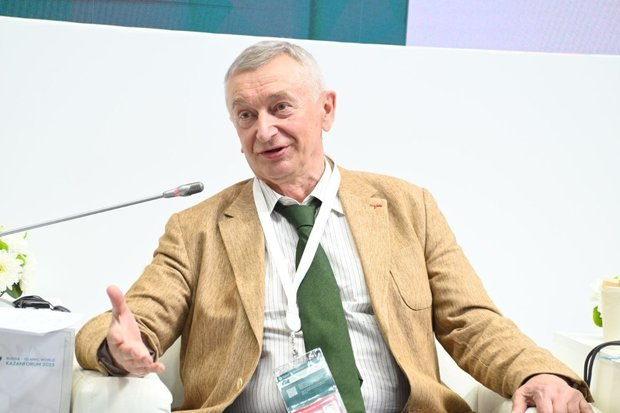Vyacheslav Kondratyev: ‘It is necessary to retrain the whole engineering corps of the country’
Speakers turned on a chat bot at the Russia — Islamic World: KazanForum
It is necessary to retrain all the engineers of the country to effectively develop artificial intelligence, head of the Research Centre for AI Applied Systems of Moscow Institute of Physics and Technology Vyacheslav Kondratyev voiced this thought at a panel discussion Artificial Intelligence — Business Maturity: Real Cases during the Russia — Islamic World: KazanForum International Economic Forum
“If there isn’t uncertainty, it is not AI”
As Vyacheslav Kondratyev stressed during the discussion, the problem is that an engineer is often “educated in the method of physical and mathematical idea, mathematic traditional modelling. They don’t trust new technologies.”
Head of the Department of Recognition System Development of University of Innopolis Bader Rashid had a wider look at the issue. He said they created AI like a human, while it is necessary to think what problems a human cannot solve.
Kondratyev chairs one of the six centres in the country. His colleague from Petersburg Alexander Bukhanovsky, director of Strong Artificial Intelligence in the Industry centre at National Research University of Information Technologies, Mechanics and Optics added:
“Artificial intelligence is used when you have certain tasks that require creativity. If there is no uncertainty, there is data, a priori knowledge, it isn’t AI.”
This is why there should be no concern that AI will soon replace humans. Firstly, as Director of the Artificial Intelligence Institute of University of Innopolis Ramil Kuleyev noted, at the moment it is easier and cheaper to do tasks are grow in size in the future with the help of humans.
Secondly, as Bukhanovsky indicated, his institute works on technologies that precisely help (not replace) creative workers. Now the institute presents 15 projects of this kind that are granted over 5,000 free licences a month.
“An innovative solution often cannot boast about competitiveness because the market hasn’t yet been formed. But look, more than a half of 5,000 licences aren’t people from the Russian Federation,” Bukhanovsky noted.

How to cheapen medicines
“The amount of software related to AI is going to double in the next three years,” noted Kuleyev. According to him, voice assistance, online marketing, search optimisation, autonomous unmanned devices, retailing are its key spheres of application. Generative AI, predicative analytics, medicine are especially promising.
“The introduction of AI in pharmaceutics can reduce the time of medicine production from 10 years to two or three,” noted Kuleyev. “And it can lower their price.”
As one could notice, the work with unmanned vehicles was especially popular in Russia. Moscow Institute of Physics and Technology in particular works with Ural car factory, moreover, the work is done with the help of the so-called model-based systems engineering (the speaker didn’t even translate the name) when a virtual car model is created, after that, its data it added to the real car. Also, there done a job on unmanned vehicles in Innopolis where all emergencies are designed on a computer.
The exhibitions like the one this discussion was part of will change soon, indicated Kondratyev. And the organisers seemed to drop a hint that the changes would change the roster of speakers and included ChatGTP to it that answered the question when AI could be used:
“If a problem is related to a big amount of data, hard decision-making or repeated tasks, the use of artificial intelligence can be a good solution. Also, if the problem requires a predicative analysis or processing of a natural language, AI can be a solution.”